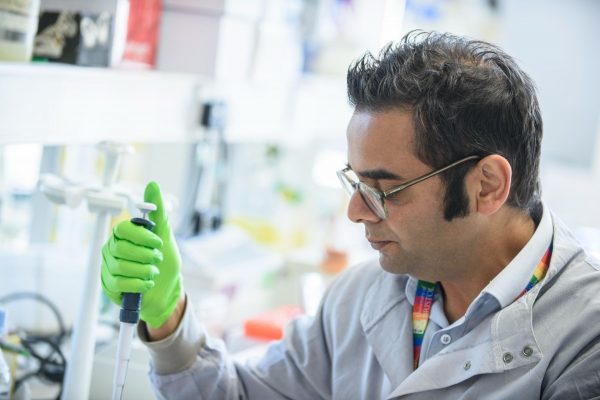
Research led by Dr Anu Goenka has shown how babies are protected from severe COVID-19 infections.
As a Clinical Lecturer in Paediatric Infectious Diseases and Immunology, much of my clinical and research work is carried out in the Bristol Royal Hospital for Children. When the COVID-19 pandemic hit, we weren’t sure how the disease would impact the young children and infants in our care.
Babies are very vulnerable to other respiratory viruses, such as the flu and RSV (respiratory syncytial virus), so initially we thought that they may also be susceptible to severe COVID-19. It soon became apparent, however, that the four babies at our hospital who had tested positive for coronavirus were only mildly affected by the disease, with all of them recovering after just a few days.
At the time, there was very little data available which could explain this unexpected immune response. So we set about finding answers in the laboratory. We obtained blood and saliva samples from the infants and their parents, who had since recovered from COVID-19, so that we could examine their antibody and cellular immune responses.
What we found was that the immune response of infants was markedly different to the immune responses of their parents. In the saliva and blood of infants, we found much higher levels of antibodies and immune cells which could protect against COVID-19. Through our research, we were able to understand the specific make-up of these antibodies and immune cells. In the future, this essential information could help us to develop new vaccines which would protect adults against SARS-CoV-2 by mimicking the immune response of infants.
Donations from alumni and friends like you provided a huge boost to our research and to many of the University’s other ground-breaking COVID-19 research projects. For that we’d like to say a big thank you.
The team felt privileged to be able to conduct this study; working with families and turning our bedside observations into clinical data was extremely rewarding. A collaborative spirit has run throughout the University’s SARS-CoV-2 research, and that was very much true of our research. We hope that the organisations and individuals who came together to fund our work feel a strong sense of pride; you’ve really helped to push our understanding of COVID-19 forward.
